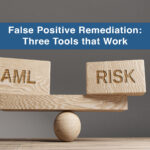‘Dark fleets,’ willing neighbors help Russia evade heavy sanctions
Even as Russia faces heavy sanctions for its war on Ukraine, it still finds many ways to conduct its business. Transactions occur outside the global financial system in order to evade sanctions.
Dr. Nicholas Mulder, a Cornell University historian, recently detailed Russia’s economic resilience to the hard-hitting sanctions. Writing in the New York Times, Mulder describes “dark fleets,” risk-taking commodity traders, willing neighbor states, and various other conduits. These many methods—and others like fraudulent trade-finance–keep products and money flowing in and out of Russia.
While Western nations levied sanctions and require compliance, nations not aligned have boosted their trade with Russia. Mulder noted surges in trade with regions like Asia, the Middle East, Latin America, and Africa. Part of the draw, he writes, lies in Russia’s rich supplies of highly valuable raw materials. To evade sanctions easily, Russia almost assuredly has established private financial networks with these trading partners. These would never see the light of day in the global financial system where AML Compliance reigns.
The Economist in late January detailed how Russia escapes oil sanctions at a massive scale. Central to their oil trade is a huge “dark fleet” of oil tankers of various origin that are uninsured and intentionally difficult to trace.
And Russian commodity traders have vacated business-friendly locations like Switzerland. Instead, they base their offices in destinations less aligned with Western interests and AML Compliance and sanctions requirements, according to recent Bloomberg reporting. Key commodities in high demand globally include fossil fuels like gas, oil, and coal, and also products like fertilizer and grain.
High profit margins and eager markets override risk
Mulder noted too that while the commodities themselves are desirable, demand is further intensified by high profit margins for trade facilitators in other countries. For example, owners of refineries and related services in locations like India and Singapore can demand high profit margins to process and move raw materials from Russia.
Other intermediaries—like Turkey, Armenia, Kyrgyzstan, and other neighbors—have further facilitated sanctions evasions. In a separate New York Times story, Ana Swanson reports how imports of smartphones to Armenia in the summer of 2022 spiked more than ten times the value in imports in previous months. Similar signs of legal imports then passed on to Russia appear in other consumer goods and in various countries.
Mulder devotes much of his analysis to the many ways that Russia has stayed afloat economically while facing heavy sanctions. But he explains that the sanctions focus on Russia can distract from a more important issue: How can the West help support the economy of Ukraine as it becomes more and more brittle. That is a question entirely out of the purview of AML Compliance and sanctions enforcers.
___________
GRC and AML Compliance: RegTechONE platform solution transforms efficiency and effectiveness
With AML Partners’ platform technology for RegTech, updating and upgrading your AML and eGRC software solutions is easier, faster, and much less expensive. Contact us today to explore how platform technology and our end-to-end AML Ecosystem powered by the RegTechONE platform–can transform the efficiency and effectiveness of your unique AML Compliance efforts. RegTechONE software for AML Compliance includes fully integrated modules for CDD KYC software for on-boarding, behavior and transaction monitoring software, and sanctions screening software for comprehensive AML screening. And AML Partners simplifies your end-to-end fully integrated AML Compliance efforts even further with an optional Subpoena Search module for FinCEN 314a and similar subpoena searches. Contact us today to learn about our proof-of-concept option or schedule a demo of RegTechONE, the AML software ecosystem. With extraordinary configurability and built for API extensibility, the RegTechONE AML software platformpowers not only an end-to-end AML software solution but also vendor management, AML client lifecycle management, eKYC Golden Records, Perpetual KYC, and so much more.


